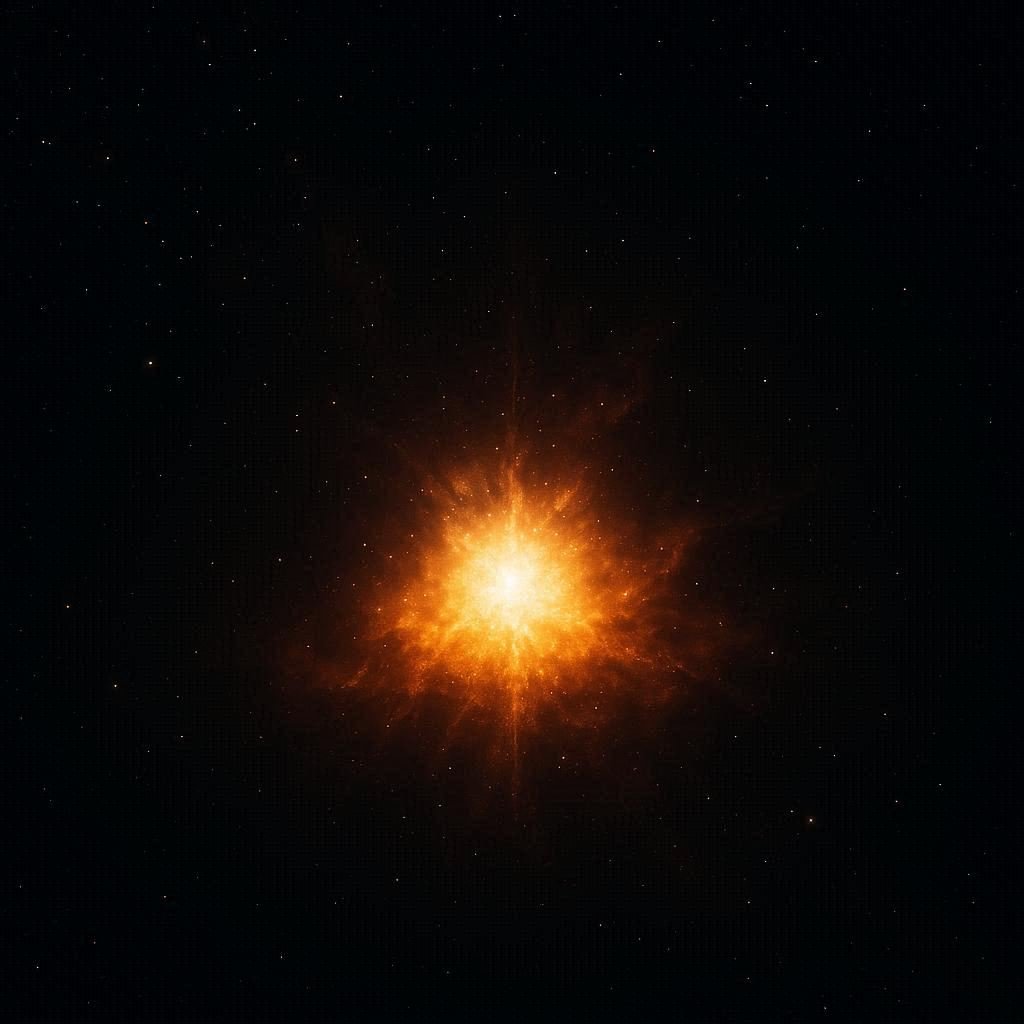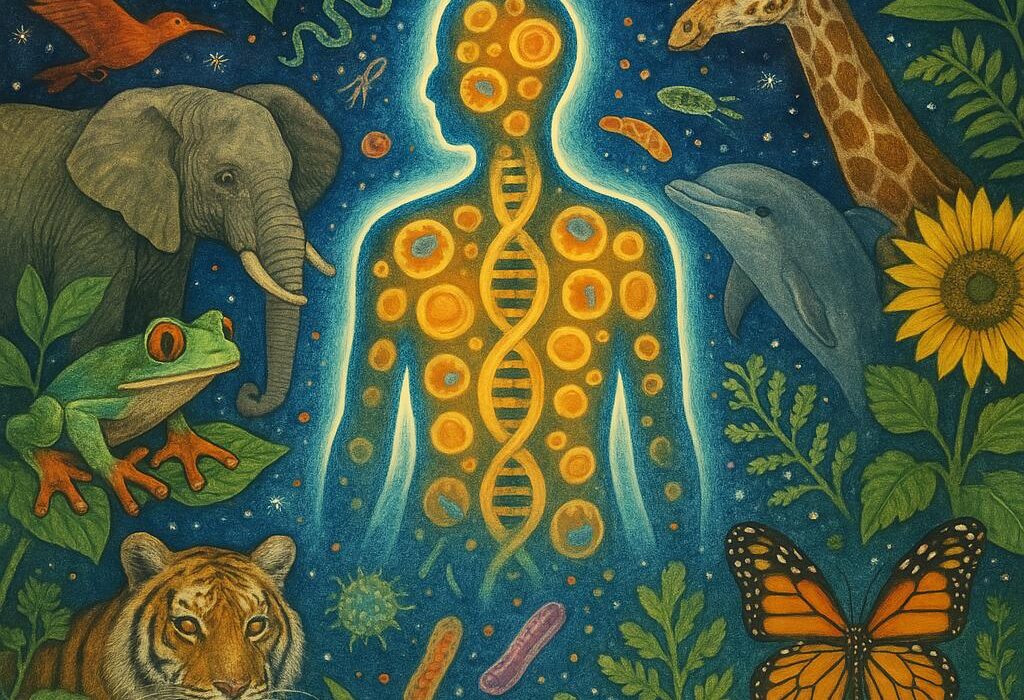For centuries, science has been our guiding star, illuminating mysteries once thought unreachable. We split atoms, decoded DNA, peered across billions of light-years, and engineered technologies that reshape human existence. Yet, with each answer comes a deeper question, a fresh paradox. Some whisper that science will one day explain everything. Others suspect there are realms forever closed to human reason, mysteries woven so deeply into existence that no equation, no telescope, no supercomputer will ever capture them fully.
This article explores ten profound frontiers—concepts that may forever lie beyond science’s grasp. They are not failures of reason, but reminders of the vastness of reality, the humility of knowledge, and the enduring power of wonder. Each concept is a mirror reflecting back our limitations and a beacon urging us to embrace mystery as much as understanding.
1. The Origin of Existence Itself
The most haunting question of all is also the simplest: Why is there something rather than nothing?
Science has mapped the first fractions of a second after the Big Bang with exquisite precision. Cosmologists describe inflation, particle formation, and the emergence of galaxies. Yet, when we ask what sparked the Big Bang—or why the laws of physics exist at all—science falters.
Did the universe emerge from a quantum fluctuation? Was it born from a multiverse? Did it arise from dimensions beyond our comprehension? These are ideas, not answers. Science may trace the unfolding of events, but the fundamental origin—the raw fact of existence—seems to elude it. Perhaps it always will.
In this silence lies the deepest awe: we exist in a universe whose birth may be forever beyond human explanation.
2. The Nature of Consciousness
Few mysteries strike closer to home than consciousness—the raw, subjective experience of being. Neuroscience can measure brain activity, map neurons, and correlate electrical patterns with emotions or decisions. But the hard problem of consciousness remains: how does matter become mind?
A brain is a network of cells firing signals, but how do sparks of chemistry become the taste of chocolate, the pain of loss, or the wonder of starlight? Science explains correlations, not the essence.
Some suggest consciousness is an emergent property of complexity. Others imagine it as fundamental, woven into the fabric of reality. Yet no equation explains the first-person experience of “I.”
This gap may never close. For consciousness may not be reducible to parts; it may be a mystery that sits forever at the edge of knowledge—where science meets the soul.
3. The Ultimate Fate of the Universe
Science predicts possible endings for the cosmos: heat death, big crunch, big rip, or endless expansion. Equations of thermodynamics and cosmology sketch scenarios stretching trillions of years ahead. But what actually lies at the end of time is beyond any observation or test.
No human will live to witness the last star flicker out, the final black hole evaporate, or the potential rebirth of space itself. These endings exist in equations, not experience. They are extrapolations built on the laws we know, yet those very laws may change over cosmic timescales.
Thus, the ultimate fate of the universe may always remain a matter of speculation—a horizon of knowledge forever retreating as we approach.
4. The Infinity Paradox
Infinity is a concept both dazzling and maddening. Mathematicians wield it elegantly; physicists stumble when it emerges in equations. Is space truly infinite, stretching without end? Or is it finite but unbounded, like the surface of a sphere on a higher dimension?
Infinity breaks the rules of intuition. An infinite universe could contain infinite copies of you reading this very sentence. Time, too, might stretch without end, raising paradoxes about repetition, probability, and meaning.
Science may never resolve infinity, for it is not a measurable quantity—it is a concept beyond empirical verification. We can model it, imagine it, fear it, but never confirm it. Infinity may remain the eternal ghost haunting science.
5. The Nature of Time
We live within time, yet do not understand it. Physics treats time as a dimension, intertwined with space. Relativity shows that time bends and slows under gravity and velocity. Quantum physics, however, suggests time may be emergent, not fundamental.
But what is time itself? Why does it “flow”? Why does it move from past to future? The arrow of time, grounded in entropy, explains why eggs break but never un-break. Yet this does not answer why we experience time as a passage, why memory holds the past but not the future.
Perhaps time is a human construct, a trick of perception imposed on reality. Or perhaps time is woven into the universe in a way our minds can never grasp. Either way, science circles the mystery without reaching its core.
6. What Lies Beyond the Observable Universe
We gaze into the night sky and see light that has traveled for billions of years. Yet our cosmic horizon is limited; beyond it lies darkness we cannot penetrate.
Does the universe continue endlessly? Are there other universes, stitched together in a grand multiverse? If so, do they obey the same laws of physics, or do they host realities utterly alien?
Science cannot answer, because by definition the unobservable remains unseen. No telescope can pierce beyond the cosmic horizon. No experiment can test another universe. Here we confront the wall of knowledge—the recognition that beyond our instruments may lie infinity, untouched and untouchable.
7. The Limits of Human Understanding
Science is not only constrained by the universe but by the human mind itself. Our brains evolved to hunt, gather, and survive, not to grasp quantum entanglement or eleven-dimensional string theory. Perhaps some truths of reality exist in patterns too complex, too vast, or too alien for our minds to ever comprehend.
Even mathematics—the most abstract tool we wield—may be limited by our cognition. Gödel’s incompleteness theorems show that some truths can never be proven within a given system. Might the universe itself be built on principles forever beyond proof?
The humbling possibility is that there are truths science cannot reach, not because they do not exist, but because we are simply not equipped to grasp them.
8. The Question of Meaning
Science explains mechanisms, but it does not explain meaning. It can tell us how stars form, but not why beauty moves us when we gaze upon them. It can describe the chemistry of love, but not why love feels sacred.
Meaning belongs to the realm of philosophy, art, and spirituality. Yet it is inseparable from human experience. To ask, “Why are we here?” is not a scientific question, but it is the most human of questions.
Some argue that meaning is subjective, created by consciousness itself. Others hope that science may someday reveal a hidden purpose to the cosmos. But meaning resists measurement. It lies beyond the laboratory, in the mysterious terrain of the heart.
9. The Boundary of Nothingness
What is nothing? The word itself dissolves under scrutiny. A vacuum is not nothing—it seethes with quantum energy. Even “empty space” has dimensions, laws, and fields. But true nothingness—absolute absence—cannot be observed, cannot be described, and may not even exist.
Yet philosophers and physicists alike wrestle with the idea. If the universe emerged from nothing, then what is this nothing? If nothing cannot exist, then existence itself becomes inevitable—but why should it?
Science depends on something to measure. Nothingness, by definition, cannot be measured. Here, language collapses, and science bows before paradox.
10. The Final Limits of Discovery
Perhaps the greatest mystery is whether discovery itself has an end. Will science someday exhaust its questions? Or will new mysteries bloom endlessly, each answer spawning further questions?
Some fear that as theories grow more abstract—string theory, quantum gravity, dark energy—we approach the limits of testability. Experiments require energies, distances, and scales beyond human reach. The danger is not that reality has no more secrets, but that we may never access them.
And yet, even here, humility is vital. Science has surprised us again and again, shattering barriers once thought absolute. Still, there may be final walls, truths that lie forever out of reach, horizons that retreat no matter how far we travel.
Conclusion: Embracing the Infinite Mystery
Science is humanity’s most powerful lens, but even the sharpest lens cannot pierce every shadow. Beyond its reach lie origins we cannot explain, consciousness we cannot decode, infinities we cannot measure, and meanings we cannot define. These are not failures but reminders of our place in the cosmos.
The end of discovery is not the end of wonder. In fact, the mysteries beyond science’s grasp are what make discovery meaningful. They remind us that knowledge is not about owning the universe, but about dancing with its mystery.
Perhaps we will never know why the universe exists, why time flows, or what lies beyond our horizon. But maybe the point was never to reach the end. Maybe the beauty lies in the journey—in daring to ask, to wonder, and to search, even when answers remain forever just beyond our grasp.






